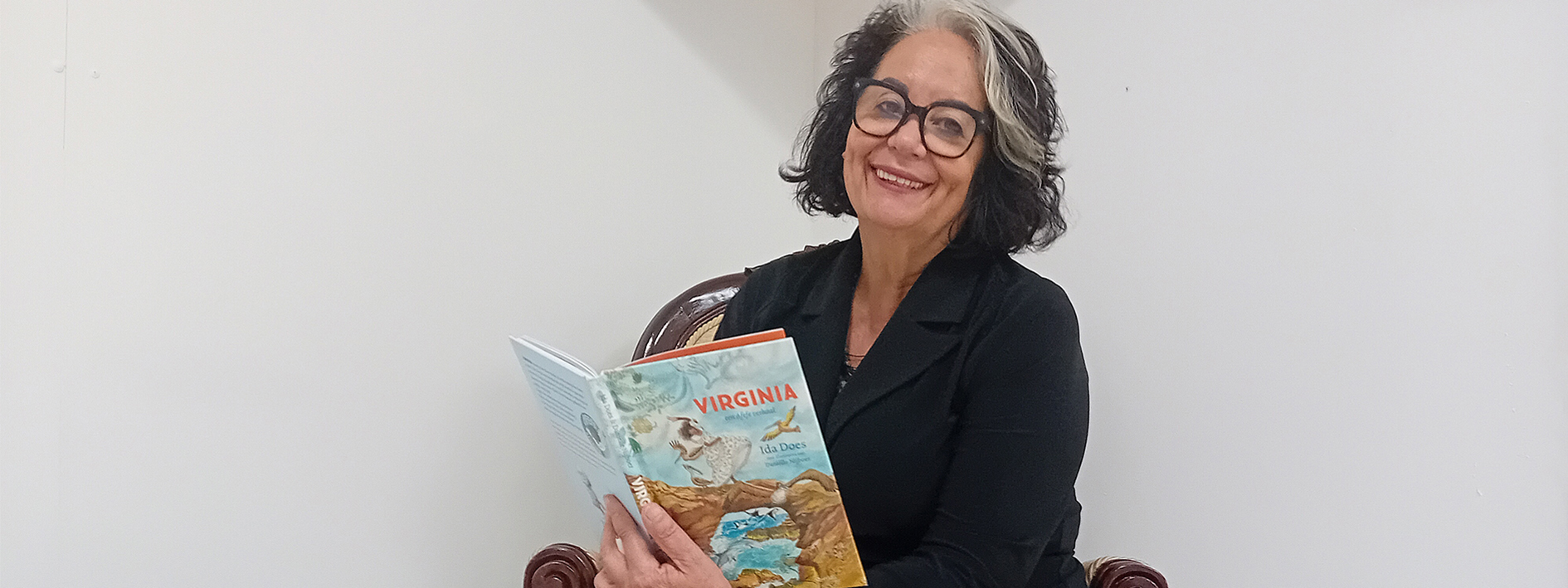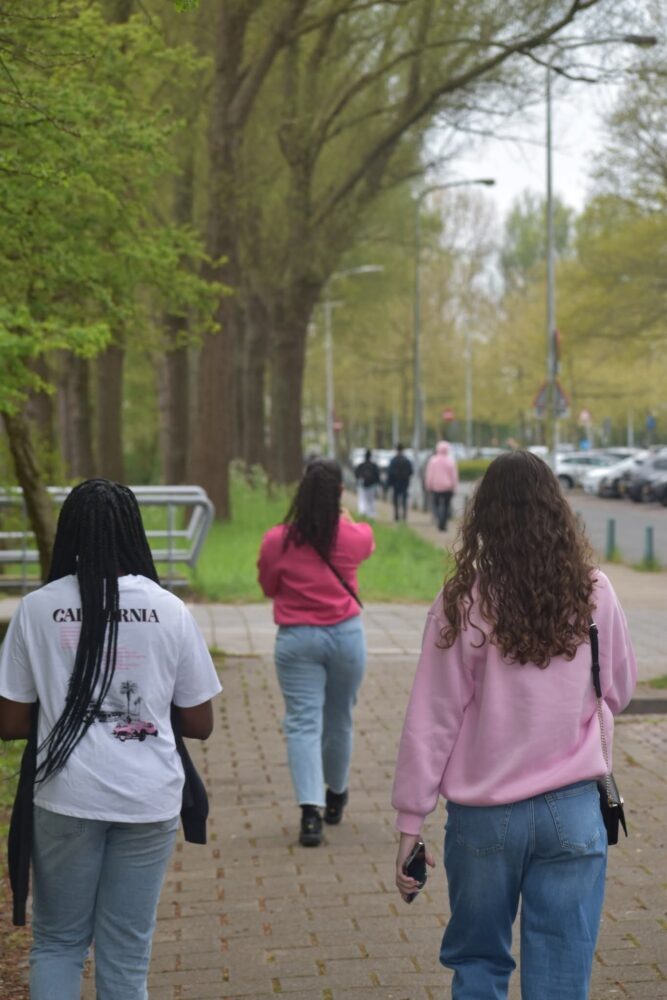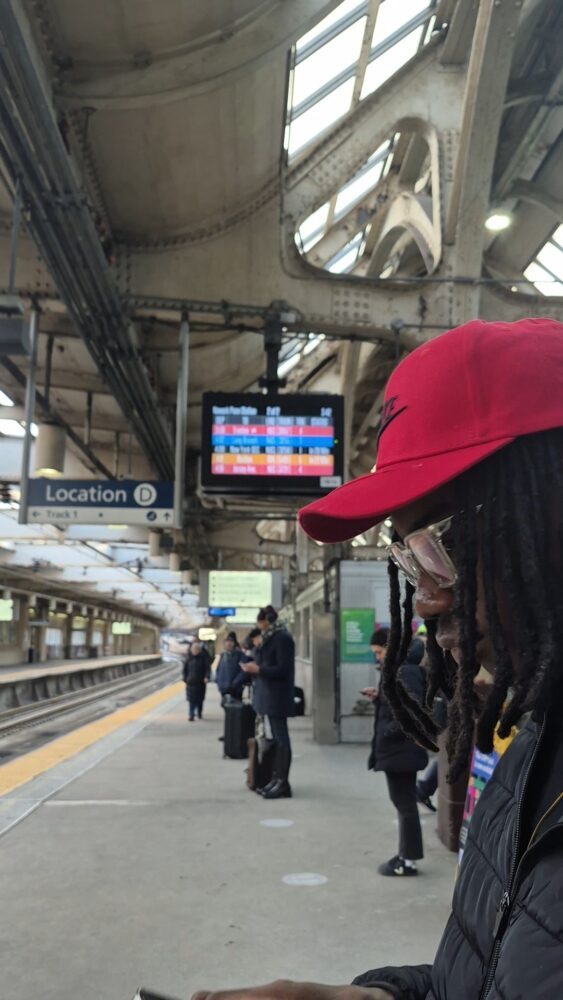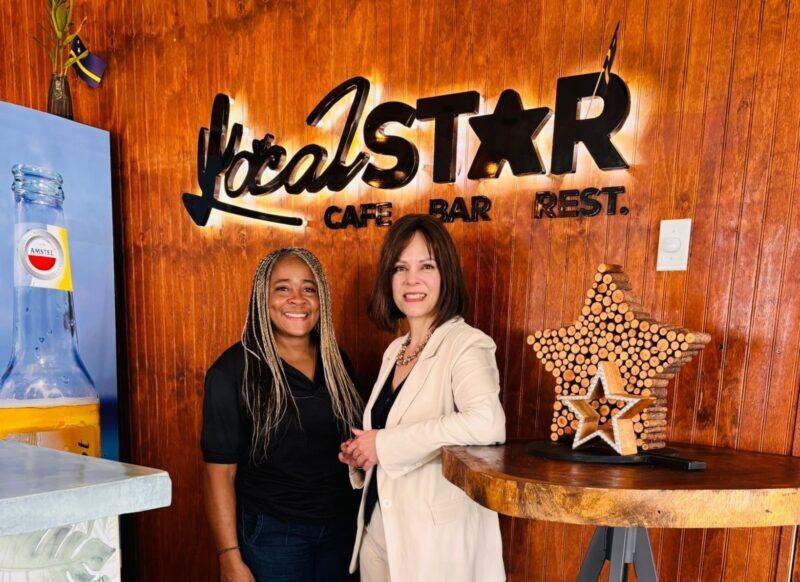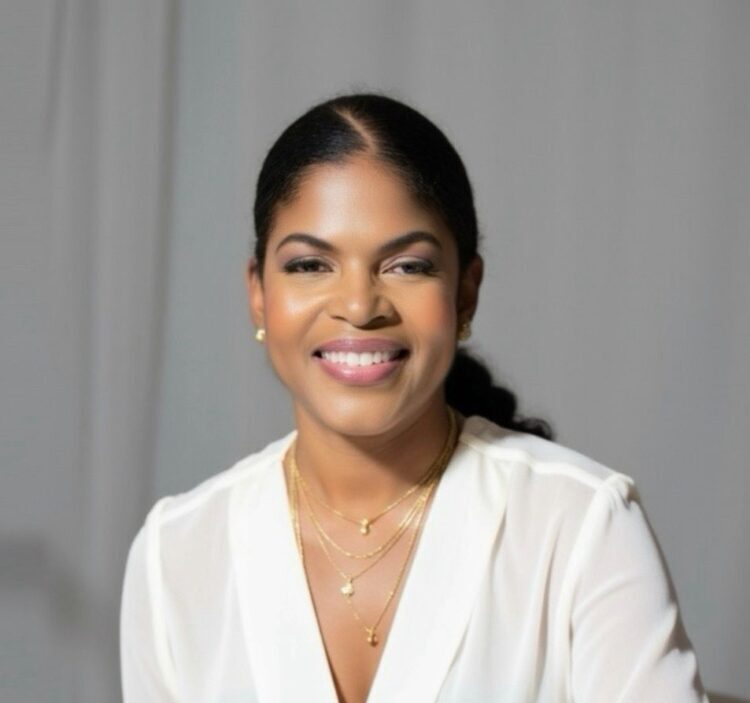With the story ‘Virginia’, writer and filmmaker Ida Does want to draw attention to the human aspect of slavery. “We try to portray what Virginia’s dreams and aspirations were, what her family was like, and what friendships she would have had.”
“A long dream has been fulfilled with this book,” says Ida Does. The filmmaker was still living in Aruba when the book ‘Slaves without a Plantation’ by Luc Alofs was published more than twenty years ago, in which the enslaved Virginia was mentioned.
“That story has stayed with me. This series allowed us to further explore Virginia’s story, contextualize it and put a magical spin on it. It is inspired by historical facts but is also fiction,” she explains.
Virginia
The story is about Virginia Demetricia, she is ‘catibo’ (enslaved) on the Barbiola plantation and longs for freedom. Afefe, the magical wind, comes to Virginia’s aid in her quest for freedom.
The aspect of the indigenous people who lived on the island during that period is also incorporated into the story: Virginia is friends with Miss Flora, a free woman who has a house on the beach and makes hats.
The historical facts come from the National Archives of Aruba and are also presented as context at the back of the book. This background is also explained during the presentation in Aruba, for which the writer and her team have had extensive contact with researchers who have studied Aruba’s slavery history.
An important starting point for the story is Virginia’s family tree, but also the fact that she worked as a ‘field worker’ at an aloe plantation and not indoors.
Toughest punishments for a woman in Aruba
Virginia is said to have received the harshest punishments as a woman in Aruba because she repeatedly resisted her slave owner, Jan van der Biest.
The records show that she was punished for stealing clothes, talking back, and running away. For this, she was imprisoned at Fort Zoutman, had to do forced labor, and received the harshest punishment you can get for running away, fourteen strokes of rope. “Fort Zoutman has a very cruel history because it was the place of oppression and violence against innocent people,” says Does.
Afefe stories
Ida Does is part of the Afefe team together with illustrator Daniëlle Nijboer, Joan Windzak and Ellen Rose Kambel. Together they came up with the idea of making a series of children’s stories about women who lived during times of slavery. The book ‘Virginia’ is the first of these Caribbean stories set in colonial times, the Afefe stories.
Afefe means ‘wind’ in Yoruba and was chosen as a symbol of wind and magical power that recurs in the stories. In this way, a connection could also be made with African history and Trans-Atlantic slavery. The choice fell on wind because Aruba and the other Caribbean islands all have the Northeast trade wind in common, Does explains.
This week a number of presentations were given at secondary schools on the island. “We want to contribute to a humane story. Behind all the data in colonial registers there are dramas and it was people in difficult situations who had to make difficult decisions. We want to bring a sense of connection and pride to the next generation,” says Does.
The story has also been made available for free as an audiobook in Papiamento so that more people can get to know the book. It can be listened to here.




